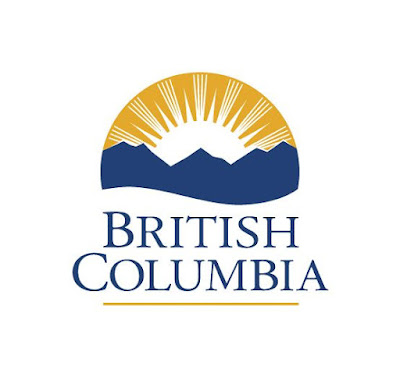Status: Regular Full Time, unionized
Salary: $72,724.97 – $83,014.85 annually
Location: Victoria, BC V9B 6X2 CA (Primary)
Apply: Please do not submit a cover letter as it will not be reviewed. A resume is required as part of your application; however, it may not be used for initial shortlisting purposes. As part of the application process, you will be prompted to complete a comprehensive online questionnaire to demonstrate how you meet the job requirements. Please allot approximately 60 minutes to complete the questionnaire. Closing date: 2/20/2022
Scope
Make a difference in this rewarding career opportunity.
The Ministry of Forests, Lands, Natural Resource Operations and Rural Development (FLNRORD) delivers policy and programs to provide economic, cultural, environmental, and social benefits for all British Columbians. FLNRORD supports the Government of British Columbia in its focus on building a true and lasting vision of reconciliation.
The Heritage Branch, operating within the Integrated Resource Operations Division, encourages and facilitates the recognition and safeguarding of B.C.’s cultural heritage through the development and implementation of tangible and intangible heritage policy and programs related to geographical naming, heritage capacity building, historic places recognition, fossil management and the stewardship of physical heritage resources.
The Heritage Branch is committed to building and maintaining partnerships with Indigenous Peoples and is accountable to advancing the government’s work on the United Nations Declaration on the Rights of Indigenous Peoples (UNDRIP) and the Truth and Reconciliation Commission’s Calls to Action (TRC). In particular, the position of Provincial Toponymist is committed to implementing article 13 of UNDRIP, which recognizes the right of Indigenous Peoples “to designate and retain their own names for communities, places and persons”.
Under the broad direction of the manager, the Provincial Toponymist leads the planning and implementation of the province’s Geographical Naming Program (GNP). The sole position in the Province with this responsibility, the Provincial Toponymist’s actions and decision-making authority related to official naming of geographical features in B.C. are legislated in Section 5 of the Land Act.
As the provincial subject matter expert on geographical names, the Provincial Toponymist develops geographical naming strategies, plans and policies to develop, implement and coordinate the province’s GNP and maintain all datasets and records in the public trust. The position maintains the BC Geographical Names Information System (BCGNIS), the master database of official and recorded place names, and the authoritative source of B.C. naming information for all of Canada, and where all official provincial maps originate.
The Provincial Toponymist is a recognized provincial expert and resource in the field of geographical naming, Indigenous cultural heritage and associated geographical naming protocols. In keeping with UNDRIP, TRC and the B.C. Declaration on the Rights of Indigenous Peoples Act, the Provincial Toponymist works with Indigenous governments and communities to document, record and officially adopt Indigenous place names, increasing the visibility of Indigenous cultures in British Columbia and deepening British Columbians’ understanding of the history of the province.
Because of the unique specialization, the position operates with a high degree of independence and exercises considerable discretion and authority in leading complex and high-profile projects, problem solving and decision making, including the adoption of all official geographical names in B.C. The position provides subject matter advice, policy analysis, specialized research, treaty negotiations support and consultation services, with respect to geographical naming, to executive and senior management, various provincial and national agencies, local and Indigenous governments, communities, and various stakeholders (e.g., historians, researchers, Geographic Information System (GIS) specialists, search and rescue professionals, land developers, program interpreters, municipal representatives, etc.).
To ensure B.C.’s toponymic priorities are successfully achieved and generally aligned with provincial and territorial jurisdictions across Canada, the Provincial Toponymist represents B.C. as the only appointed member of the Geographical Names Board of Canada and may sit on or lead various national and inter-provincial working committees as required. The position also supervises the work of staff, co-op students, and/or Indigenous Youth interns and external contractors.
Job Requirements:
In order to be considered for this position, your application must clearly demonstrate how you meet the education and experience as outlined below:
- Bachelor’s Degree in Linguistics, Cultural Geography, Indigenous Studies, History, Anthropology, Cultural Studies, or other directly related field AND a minimum of 3 years of *related experience OR
- Master’s Degree in Linguistics, Cultural Geography, Indigenous Studies, History, Anthropology, Cultural Studies, or other directly related field AND a minimum of 2 years of *related experience.
*Related experience must include:
- Planning and/or implementing cultural heritage programming (e.g. geographic naming protocols, language, intangible cultural heritage, etc.), preferably in the public sector.
- Coordinating public engagement, consultation and outreach, including with Indigenous communities or in multicultural environments.
- Developing and implementing policies and processes and/or identifying issues requiring policy solutions.
- Establishing, building, and maintaining collaborative working relationships across cultures and organizations, including government officials, Indigenous partners, and community stakeholders.
- An equivalent combination of education and experience may also be considered.
Preference may be given to candidates who:
- Self-identify as Indigenous (First Nations, Métis, Inuit).
- Have demonstrated experience with GIS (Oracle, ESRI), web mapping applications, Adobe Creative Suite (Acrobat, Photoshop), Corel Draw and/or Audacity.
Full details can be found here https://bcpublicservice.hua.hrsmart.com/hr/ats/Posting/view/84313

No comments:
Post a Comment